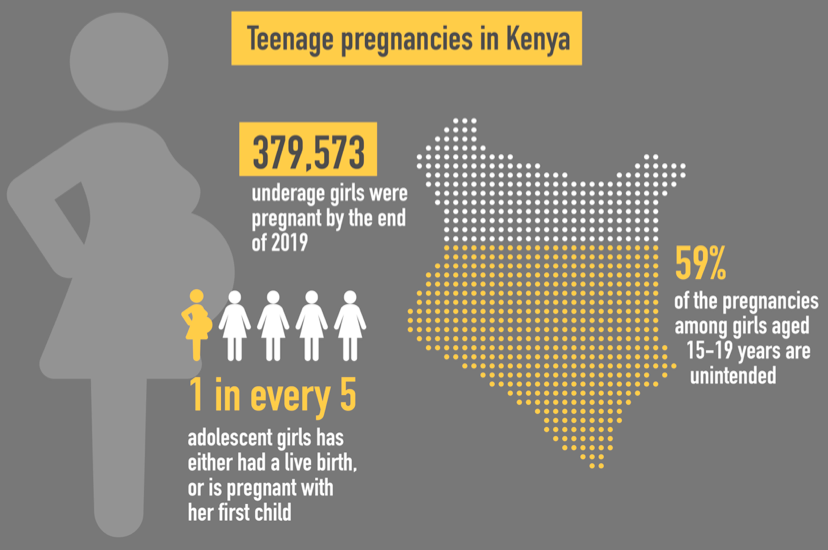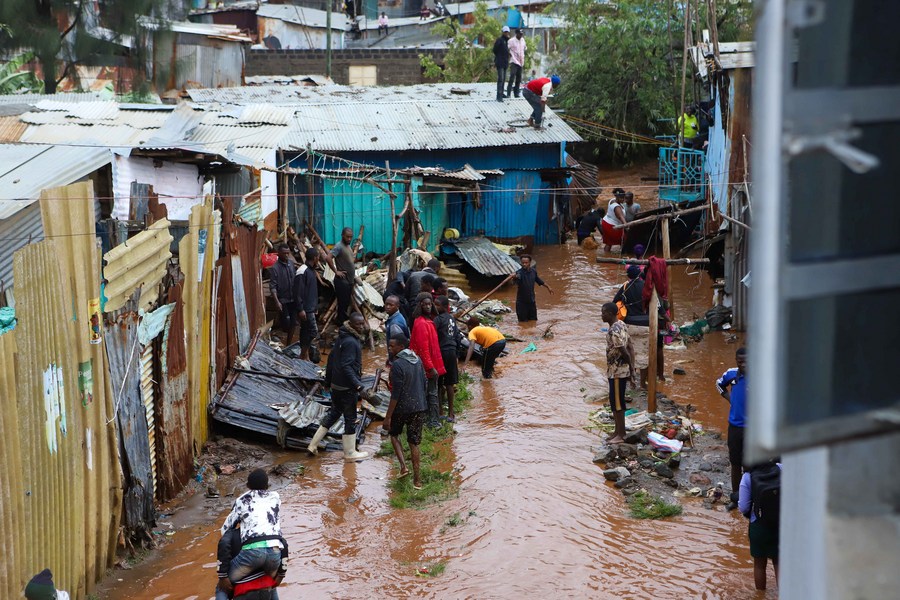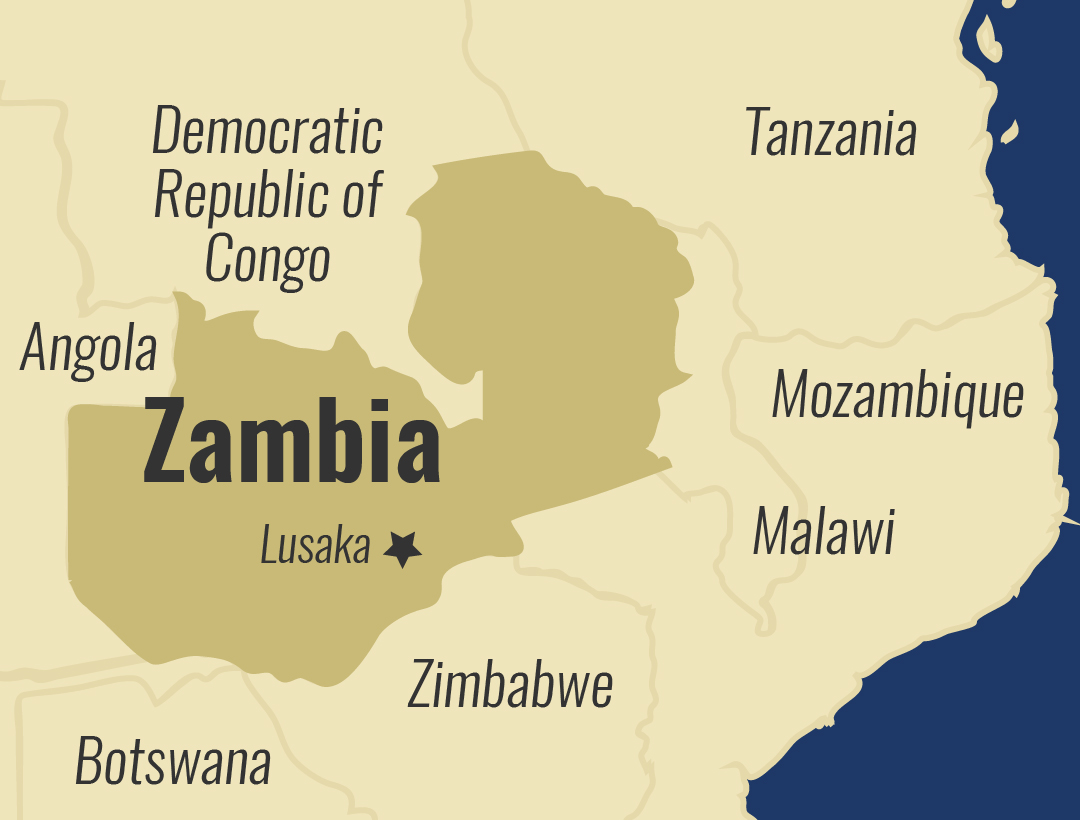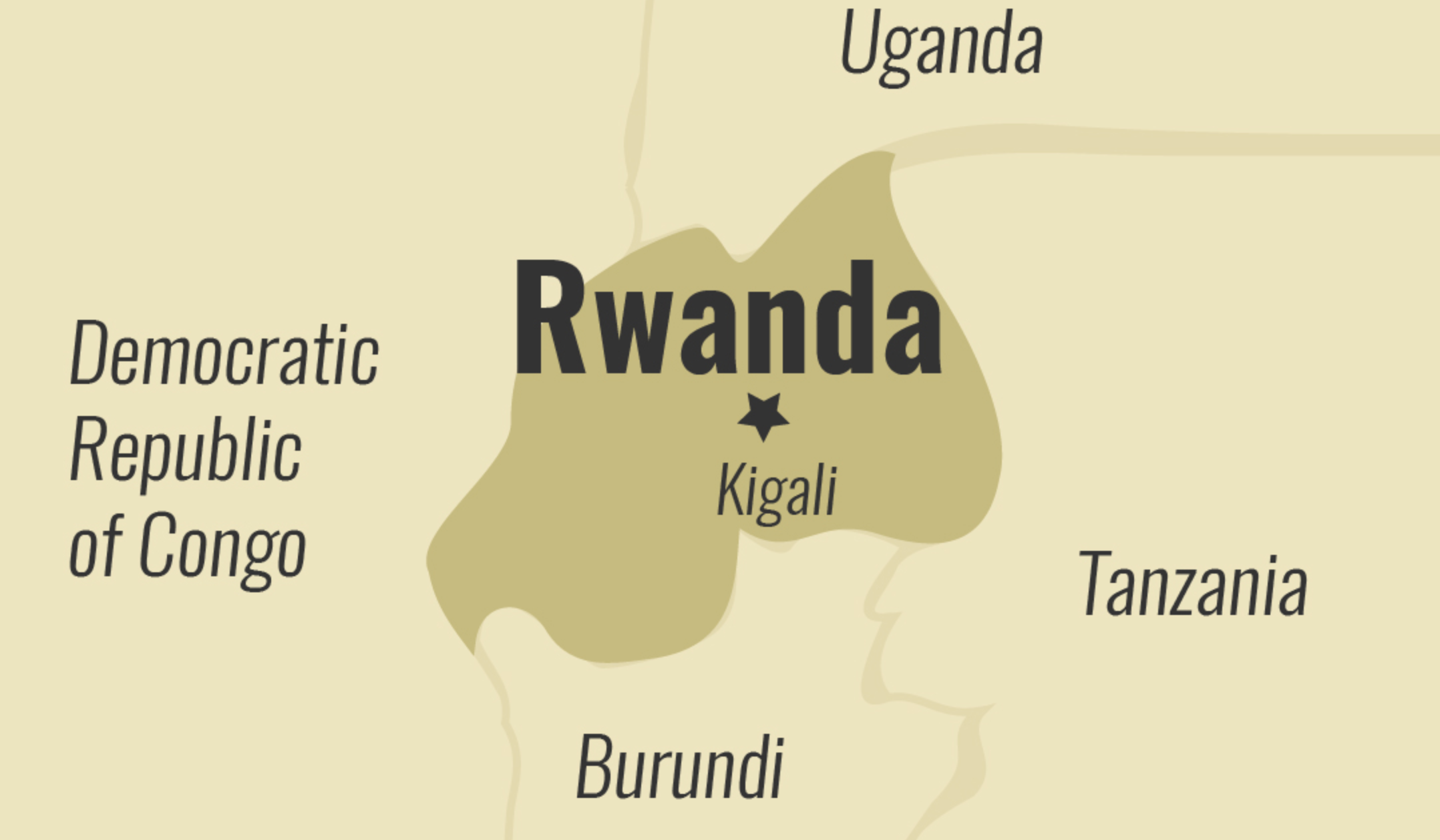
The teen pregnancy conundrum in Kenya
Over the past six months, the world has been grappling to contain the deadly coronavirus that has so far claimed over half a million lives. But, as governments and health officials insist on various safety measures to curb the spread of the virus, there is a different ill creeping into society, that of teen pregnancies.
A report recently released by National Council on Population and Development (NCPD) shows that two out of five teenagers in the country are either young mothers or are pregnant.
Since the pandemic hit, 20,828 girls aged between 10 and 14 years have become mothers while the older girls aged between 15-19 years, 24,106 are either pregnant or mothers already.
In terms of county statistics, between January and May, 4,000 girls aged below 19 years were reported pregnant in Machakos County. Moreover, according to a local publication, Daily Nation, Nakuru county reported 1,748 teen pregnancies, Kajiado (1,523), Kericho (1,006), Homa Bay (957) and Garissa (901), while other counties such as Lamu, Embu and Elgeyo Marakwet each reported about 50 cases of teen pregnancies.

A further scrutiny of teen pregnancy statistics in Kenya reveals that between July 2016 and June 2017, Kenya recorded 278,397 adolescent and teenage pregnancies for girls aged 10-19 years, specifically, 28, 932 girls aged 10-14 and 349,465 girls aged 15-19 became pregnant, according to a United Nations Population Fund Report.
However, despite the fact that teen pregnancies have been a menace in the country, over the last few years, the latest data shows that the numbers peaked in the month of March after schools were closed over the Covid-19 pandemic.
Who is to blame?
The World Health Organization (WHO) states that teen pregnancies are more likely to occur in marginalized communities, commonly driven by poverty and lack of education and employment opportunities.
Poverty pushes girls into activities that expose them to sexual exploitation and having sex in exchange for money and food. In such situations, young girls are not in a position to negotiate safer sex and are often at risk of pregnancy, sexually transmitted infections, including HIV, and violence such as rape.

Take for example the case of a 19-year old girl living in Kibra who was impregnated by an older man who had offered her free Wifi (to allow her to study), as reported in the local dailies.
The young girl narrates how the man later on dragged her and defiled her. According to the report, the case is still under investigation and the suspect is free.
She is not the only one, only a week ago, a 47-year-old man was arrested after he sexually attacked his seven-year-old neighbour.
Lack of education and access to proper sexual healthcare is also to blame, according to Plan International, a humanitarian organization that advances children’s rights and equality for girls.
“Our research shows that the majority of teenage pregnancies are unintended. Even before the crisis, girls and young women in Kenya faced considerable challenges in accessing essential health information and services”
“Now, amid a pandemic that is straining even the strongest healthcare systems, there is a real risk that sexual and reproductive health and rights will be deprioritised, with devastating consequences for girls and women,” Kate Maina-Vorley, County Director for Plan International in Kenya says.
While the country’s Ministry of Education has acknowledged the need to provide information on sexuality, the lack of access to comprehensive sex education in schools is seen to be a key contributor to teenage pregnancy as very few adolescents receive comprehensive sex education.
Another barrier to providing sex education in schools is the resistance by some organizations who claim that the responsibility lies with the parents.
As soon as reports of the statistics were published, the Education Cabinet Secretary George Magoha accused parents of abdicating their responsibility of advising their children on the dangers of engaging in early sex.
“When teenagers get pregnant, they drop out of school and their life is wasted. Parents should be responsible enough and regularly advice their young ones,” he said.
The blame has also been shifted to the teens themselves, with some arguing that with schools’ closure, teens were left alone and therefore ‘willingly’ engaged in pre-marital sex.
A story highlighted by one of the local television stations reveals this. *Blue says that she got pregnant after a fellow classmate befriended her and the two engaged in sex.
“We were friends from December last year, to March this year, when I fell pregnant, but after I told him about it, he said he did not want anything to do with me,” she said.
*Blue will soon become a first-time mother joining the thousands of young girls who bear children before their 19th birthdays.
In a different county, is *Jane, a 17-year old who is the mother of a four-month old baby. As per a report on a local newspaper, “Jane had a lot of time on her hands and fell in love with Ali, a 16-year-old neighbour”, the two got intimate and the young girl became pregnant. “When her family knew she was expecting Ali’s child, she was married off to him”, the report says.
Way forward
As the reasons for teen pregnancy numbers emerge such as; Rape, defilement, poverty and lack of proper sexual education, the question that remains on the lips of many is: What exactly needs to be done to win the battle against teenage pregnancy?
On its part, Plan International is calling for governments to prioritize and fully fund Sexual and Reproductive Health and Rights (SRHR) as part of their COVID-19 response plans, recognizing the essential and life-saving nature of these services.
“We are also calling on governments and the private sector to embrace new ways of providing sexual and reproductive health information and services, including through social media, tele-health, radio and distance learning and to mitigate the impact of any disruption in supply chains for contraceptives and essential HIV medicines,” the organization says.
For Mercy Mwende, a social activist, beyond introducing sexual education in schools, she believes that law enforcers should be on the lookout for those who are responsible.
“As the police prowl the streets enforcing the curfew and arresting those found without masks, they should also be vigilant for rape and early marriages”
“The government needs to fasten the judicial process of defilement cases and to assist the police in making it easy for children and mothers to report rape cases; and massive sensitization on why communities should ensure that girls finish school uninhibited by pregnancies,” she says.
The government of Kenya a few months ago launched a National Campaign against Teenage Pregnancies, through the National Council for Population and Development seeking an end to teen pregnancy.
According to NCPD, “The campaign is focused on galvanizing communities on the need to end teen pregnancies through awareness and advocacy citing its negativity on socio-economic growth.”
It is the hope that with campaigns such as these, teen pregnancies will be a thing of the past.






